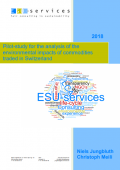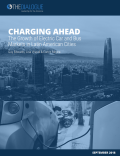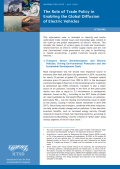


By 2050, about 70% of the world’s population will live, commute and work in urban areas. Between now and then, cities and suburbs will undergo significant transformations to create sustainable living conditions for their residents. Mobility and energy are the twin pillars of these transformations, and both will require radical adaptation to meet demographic and economic growth without increasing congestion and pollution. Cities will require mobility and energy solutions that are sustainable, affordable, secure and inclusive, and integrated with customer-centric infrastructure and services. Thus, the convergence of energy and mobility is critical.
These are exciting times in which new technologies allow people to rethink the way they live in a more sustainable and efficient manner. Smart mobility. Smart water. Smart grid. Smart integration. These are the foundations of tomorrow’s cities, which are being realized today.
